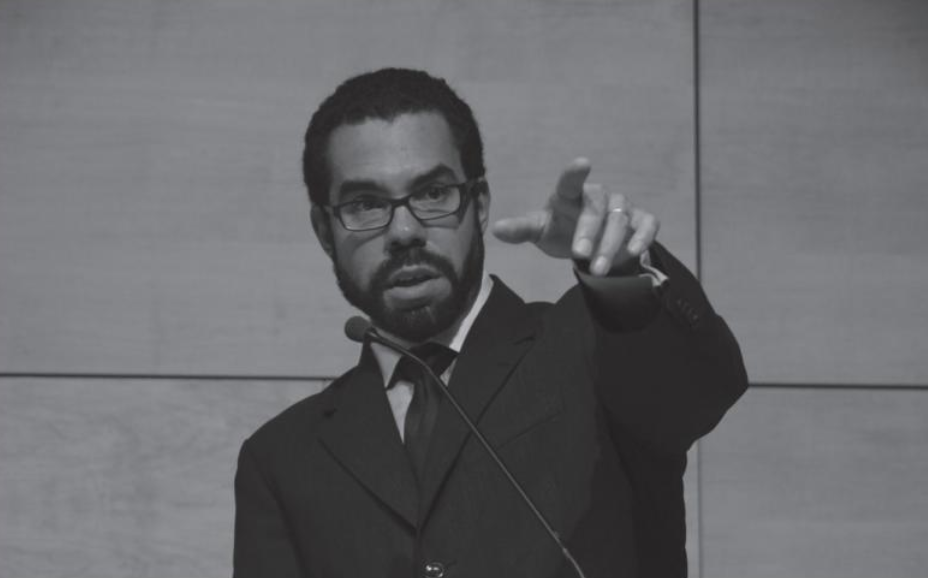By: Sarah Tewksbury, Editor-in-Chief
“What is the history of racism outside the south?”
Keynote speaker Dr. Brian Purnell posed this question to introduce his research. Spread out in Hannaford Hall Monday night, roughly a hundred students, staff, faculty and community members listened to the presentation. Organized by the Gloria S. Duclos Convocation committee as part of the continuing conversation about race and participatory democracy, Monday’s event was titled, The Strange Careers of the Jim Crow North: Race and Participatory Democracy North of the Mason Dixon Line. The evening was the second annual W.E.B Du Bois Lecture on Race and Democracy as well.
Purnell, the Geoffrey Canada associate professor of Africana Studies and History and Director of Africana Studies Program at Bowdoin College, was brought to USM to discuss the groundwork for the upcoming collection of original essays he has been working on. Its relevance to USM’s current Convocation topic brings a perspective that has not been delved into yet during the year long discussion. The perspective is of racism as being inherently rooted in the North and West in the United States. Purnell, along with colleagues Jeanne Theoharis and Komozi Woodward, are calling their anthology of essays The Strange Careers of Jim Crow: North and West.
The driving question that Purnell has explored through his investigation has led him to look for the history and pattern of racial discrimination outside of the South. During his presentation, Purnell noted that so many scholars today have to get deep into the study of race in the U.S. before they arrive at the conclusion that the North was a place of origin for Jim Crow segregation. As defined by the Smithsonian Institute, Jim Crow is the term used which groups laws passed that were discriminatory towards black Americans at the close of the nineteenth century.
According to Purnell, six million blacks left the South between 1910 and 1970 in search of economic opportunity and class mobility. Traveling to the North and the West these citizens were reportedly legally restricted through segregation, regardless of their location in the U.S. Purnell provided examples of Northern extralegal racial violence such as the exclusion of blacks from the same public education that whites received in Boston during the late eighteenth century, which was challenged in the court case Roberts v. City of Boston in 1850. Ruling in favor of the City of Boston, the court set a precedent later cited by the Supreme Court in the ruling of Plessy v. Ferguson, which rooted “separate but equal” into American history.
Calling for a more intense scrutiny of the emergence of racial discrimination, Purnell asked audience members to intensify their curiosity and start to look deeper at the ways in which segregation was influenced by the North.
“Racism outside of the South is so hard to understand,” Purnell said. “Yet it is so important to study and research. We need to put American liberalism under an incredibly critical microscope.”
As a continuation of the discussion of the Convocation topic, the lecture fulfilled its purpose of providing historical context to the origins of racism. Bringing the notion of intersectionality through the study of race and democracy to USM is a core principle of both the W.E.B Du Bois lecture and Convocation.

